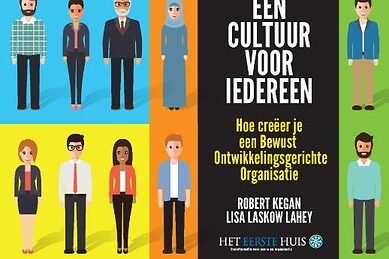‘If we have to be humble in our consulting; what happens to our pride?’ one of the participants asked dr. Edgar Schein at the annual IODA conference.
IODA stands for ‘International Organizational Development Association’, a vivid global network of OD-practitioners, students and scientists that gathers every year on a different continent. Thanks to a pre-doctoral grant provided by THUAS I was able to join this interesting conference in Mysore (India) this August. The opening session was an interview with dr. Edgar Schein about his new book: ‘Humble Consulting’ (2016).
Although Schein appreciated the question of this participant, he stated very clearly that he means ‘here and now humility’ of the consultant in situations where you don’t know enough to provide an answer: ‘that kind of humility is situational and should in no way interfere with the helpers feeling of pride being helpful to others’.

What, then, means ‘helping’ according to Schein? To him helping in complex and messy problems is not a matter of first diagnosing and then intervening to get a solution. Helping requires, he states, a personal relation with the client, based on caring, commitment and curiosity. It means letting go of too much of a professional distance, and engaging in a joint dialogic process to figure out feasible adaptive moves to deal with the situation that is worrying the client.
Somehow I miss in Scheins’ approach of ‘humble consulting’ the focus on learning he wrote earlier about in ‘Process Consultation Revisited’ (1999). Regrettably I wasn’t able to ask him a question during the conference, so I decided to mail him afterwards. My question was: ‘what is our specific contribution in stimulating the client to gain knowledge about how to go on independently in those complex and messy situations that you write about (not only in this particular situation, but in a somewhat different yet quite similar situation)?’
Quite to my surprise Schein responded within a day: ‘I think of adaptive moves as a learning process, but I agree that the concept of learning how to learn is perhaps someone understated. I believe that the consultant should work his or her way out of his or her job because the client has developed adaptive capacity. I should have stated that the purpose of the relationship with the client is precisely what you suggest: teaching the client how to learn in future situations on his or her own. I will emphasize this more in future conversations’.
I took the courage from this answer to pose him another question: ‘Maybe we get to a small difference here between what consultants do and what coaches do; consultants searching primely for solutions, and coaches focussing explicitly on learning?’ After a few days Schein responded: ‘In my experience both words are being misused and cover many different kinds of practice. I end up using the word “helping,” always being helpful, and being “a helper.”’
I do understand the choice Schein has made during his career of more than 50 years, but somehow I hesitate redeeming ‘consultation’ and ‘coaching’ for yet another fuzzy word like ‘helping’. I mean: if the raison d’être of a profession is to be very clear about the contribution you make in a specific situation, how can we -as proud professionals- accept that our profession is simply about ‘helping’? As if ‘consultation’ and ‘coaching’ don’t require a distinct expertise…
Schein, E. (1999) Process Consulting Revisited. Building the Helping Relationship. Addison-Wesley: Pearson Education
Schein, E. (2016) Humble Consulting. How to provide real help faster. Oakland California: Beret-Koehler Publishers



2 Comments